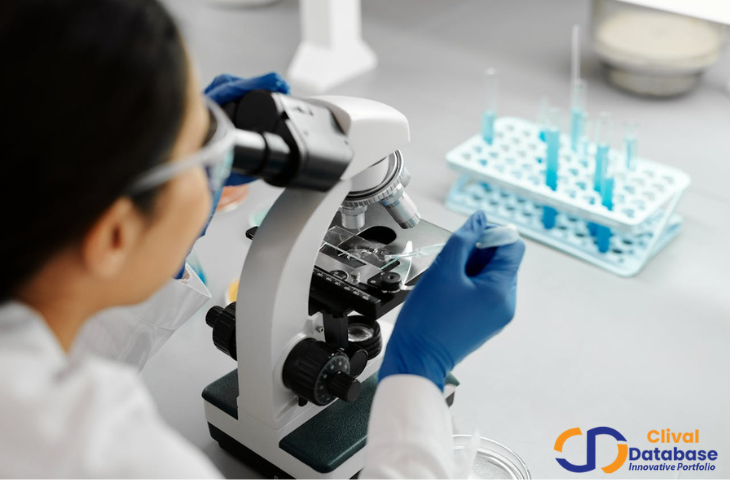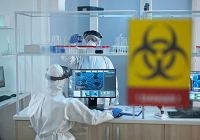The Role of Technology in Modern Clinical Trials
The field of clinical trials has been radically changing over the past few decades mainly because of improvements in technology. New approaches to trial identification, data retrieval, and clinical trial databases mean the clinical trial process is completed faster, with higher accuracy and greater depth. This blog will look at the various aspects of clinical trials with particular emphasis on the technology used in the process such as recruitment of participants, clinical drug development, and clinical trial analytics.
Revolutionizing Trial Search and Recruitment
One of the most significant problems that have always strongly characterized clinical trials is the issue of enrolment of qualified participants. This type of participant recruitment as compared to others is usually a one-stop pathway – that requires a lot of outreach and then screening most of the targeted individuals. However, with the advanced techniques in trial search and advertising tools in employment, the researchers can cover and screen the volunteers conveniently. Such sites use algorithms and artificial intelligence to select likely participants in accordance with particular parameters to ease the mobilization process and facilitate the formation of a large and diverse group.
Enhancing Clinical Data Analysis
It becomes a real challenge dealing with lots of data that are produced in clinical trial activities. From the patient’s health records to the outcome of trial, this data needs to be analysed to make some form of meaningful deductions. In this aspect, technology is quite useful through the use of some highly developed clinical data analytics applications. These tools utilise characteristics of machine learning and big data analysis to interpret the dataset in the minimum time possible but with maximum precision. More specifically, the above-cited type of big data analytics can help researchers discover new patterns and correlations in the mountains of data accumulated over the years in clinical drug development that could have remained unnoticed otherwise, thus making clinical drug development decisions more evidence-based.
Streamlining the Clinical Trial Process
Clinical trials are divided in to different phases –Phase 1, Phase 2 and Phase 3 each of which has the different criteria and goals. The contact phase and design phase especially call for efficient clinical trial organization and coordination. Technology helps in this by offering overall CTMS which encompasses different areas of the trials.
Leveraging Clinical Trial Database Software
Another innovative advancement involved in the clinical trials process are clinical trial database software that has helped much in storage and retrieval of clinical data. They are the software solutions allowing storage of a myriad of trial-related data in the secure and centralized databases. They have features for data verification, tracing, as well as for identification with rules and lawful norms for maintaining the clinical information confidentiality. Prominent Indian clinical trial databases like Clival database provides holistic information on clinical trials insights from across the globe.
Advancing Clinical Trial Analytics
Clinical trial analytics is an aspect in which technology has been used to make improvements. Using high-level analysis, it is possible to identify more specific trial results, as well as understand patient preferences. For example, forecast analytics helps determine the likelihood of the unfavourable outcomes or suggest the patient population that stands to gain most from the proposed treatment. This level of insight not only optimises clinical trials reducing risks involved and improving trials’ efficiency but also contributes to faster advancement of new treatments and therapies.
Transforming Pharmaceutical Trials
Medical procedures, or new drugs have been enhanced by technology in pharmaceutical trials. Electronic personal health records, wearable technologies and remote patient monitoring applications present real time data and permanent vigilance on the population. This means that real-time data can be collected, which provides the researcher with better information regarding progress, and enhances the ability to provide the necessary modifications to the trial itself if needed.
Accelerating Clinical Drug Development
Technology is actually bringing faster clinical trial processes to develop new drugs. One of the major benefits is that data collection and resulting analysis has become significantly faster, which helps researchers to assess the effectiveness and safety of new drugs. This efficiency is especially important today due to the competition in the pharmaceutical industry.
Clinical Trial Analytics tools offer dynamic status of clinical trials. These analytics enable the administration to observe key performance indicators (KPIs) and incorporate changes in strategies where needed. For instance, if recruitment is a problem, relevant changes to the recruiting strategies can be made with reference to the data collected, to maintain the trials’ schedules.
Enhancing Clinical Data Management
Information is the backbone of any clinical trial. The latest innovation in clinical research is the use of clinical data analysis tools, the use of which is radically changing how the data collected during trials is handled. These technologies are useful in learning and analyzing given patterns and trends which sometimes get unnoticed when analyzed by human beings.
Phase 1, 2 and 3 clinical trials are regarded as having highest data quality requirements. Meanwhile, the reliable clinical data are not only crucial for protecting participants but also for rendering the regulation work. Accuracy in capturing data from clinical trials has been improved by the use of technology through the use of electronic data capture (EDC), which eliminates problems associated with paper based data collection instruments.
Top advanced technologies for clinical trials
These technologies and software solutions are innovative and revolutionizing clinical trial processes, making them faster, precise and patient oriented.
- Artificial Intelligence (AI): AI is being applied to augment features related to the clinical trial process, including patient recruitment. Self-automating systems can forecast patient status, recruit patients for trial and study data to identify correlations.
- Wearable Devices: Smartwatches and other wearable technologies devices they are used with the aim of gathering real-time health data from the participants. Different clinics and hospitals can use this information to evaluate patient status, the compliance with the prescribed course of treatment, as well as present significant data for further clinical trials.
- Medidata Clinical Data Studio: This software possesses a wide range of possibilities for effective data management and analyses and can assist researchers in organizing the process of data collection, validation and analyses.
- Florence Healthcare: Clinical Trial site solutions by Florence Healthcare involves in site selection, study start up and trial management. (Courtesy: Forbes.com)
People are readily developing new technologies thereby implying that the clinical trial procedures will continue to undergo more improvements.
Conclusion
In conclusion, it can be said that today technology is a very important factor in the clinical trials. Be it the search for the trails, the recruitment of individuals, the collection of clinical data or the organization for the trials, technology has taken over. These have not only enhanced the structure of clinical trials, but also change the clinical possibilities of treatment. With developments in technology, the future of clinical trials appears even more promising, and with that the patient and healthcare systems around the globe.
Frequently Asked Questions

Optimize Your trial insights with Clival Database.
Are you exhausted from the uncertainty of trial insights pricing? Clival Database ensures the clarity in the midst of the global scenario for clinical trials to you.Clival Database is one of the best databases that offers an outstanding number of clinical trial data in terms of 50,000+ molecules and from primary regulatory markets as well as new entrants like Indian and Chinese markets.
Elevate your trial success rate with the cutting-edge insights from Clival database.
Check it out today and make more informed sourcing decisions! Learn More!







